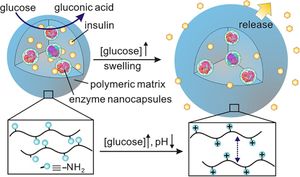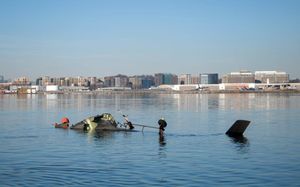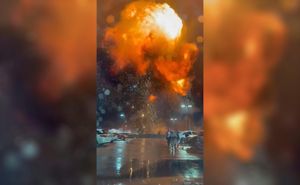On Saturday, thousands gathered across Seoul for protests concerning President Yoon Suk-yeol's impeachment, as the situation escalated with rival factions taking to the streets.
The protests unfolded at multiple locations, reflecting increasing divisions within the anti-impeachment camp. Demonstrations organized separately by various groups created notable tension on the streets, illustrating how the political turmoil has reached boiling point.
At the heart of these protests was the 'People's Movement to Restore Korea', led by prominent figures such as Pastor Jeon Kwang-hoon from Sarang Church, who began their assembly at Gwanghwamun Square at 1 PM. Participants have made their opinions clear by waving national flags and chanting against the impeachment.
Other gatherings were held simultaneously, such as the emergency prayer meeting by the Christian organization 'Save Korea' near the National Assembly, and another demonstration led by former Prime Minister Hwang Kyo-ahn advocating for election integrity outside the Seoul Central District Court.
With organizers choosing not to congregate at one site, reports suggest deepening conflicts within the anti-impeachment factions. The division follows the chaotic circumstances around Yoon's recent controversies, including his alleged misconduct and the subsequent uproar on social media.
The police were well-prepared for the events, deploying thousands of officers throughout the city to maintain order as demonstrators clashed verbally. The police issued statements urging both sides to express their rights peacefully, highlighting the importance of maintaining public safety amid the chaos.
Reports noted significant attendance at locations stretching from the Gyeongbokgung Palace vicinity to the vicinity near Seoul City Hall, showcasing the public's fervor.
On the other side of the political spectrum, demonstrations calling for Yoon’s resignation were equally impassioned. This group plans to march from Jongno Tower to Dongdaemun as part of their effort to gather public support against the president.
The security measures implemented included the mobilization of police contingents at strategic points, such as Gwanghwamun and Yeouido, to monitor high-traffic protest areas, maneuvering vehicles away as needed.
Activists have expressed frustrations about disunity within the anti-impeachment movement, considering recent events. Tensions rose even within protest sites themselves, with internal disagreements leading to incidents where individuals have been turned away from speaking opportunities due to their affiliations with dissenting factions.
Despite the divisions, the anti-Yoon demonstrations articulated clear messages of displeasure concerning governmental accountability. Supporters assert they advocate for his presidency against claims of impropriety.
The stakes have heightened amid these protests, pouring out not only sentiments of support and defiance against Yoon but also fears over potential governmental overreach as dissenting voices rally to oppose legislative measures.
Live updates from the protests continue to flood social media, with many citizens voicing concerns over the government's integrity and transparency during this precarious political time.
Today marks another significant chapter as oppositional rallies spread across the metropolitan area, indicating the extent of public sentiment surrounding Yoon's presidency.
The culmination of these events speaks volumes about the future of political stability within South Korea as internal criticisms and external pressures collide.



